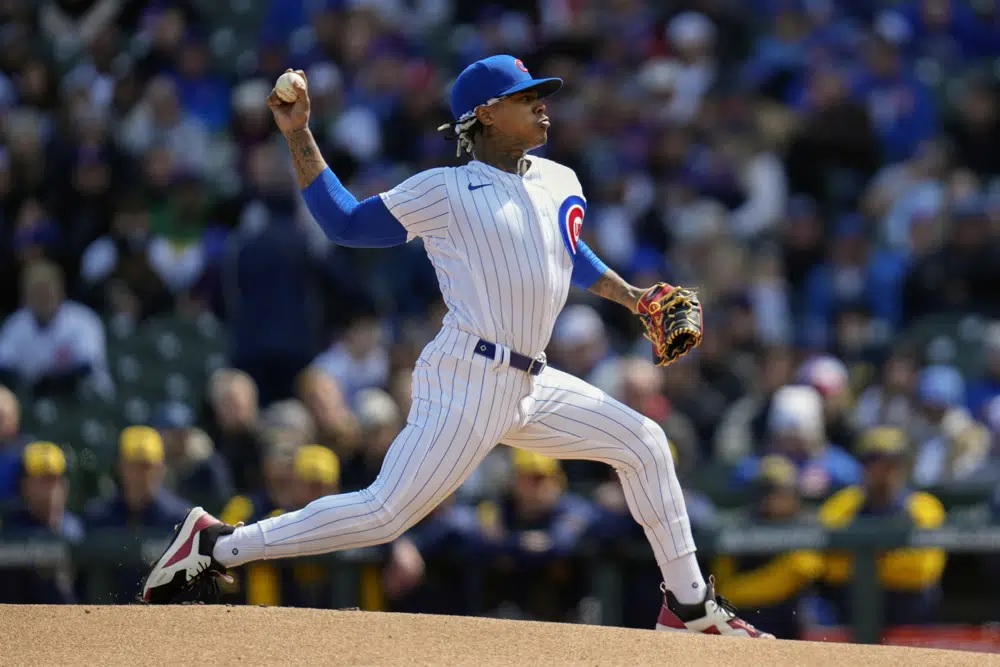
WATCH: Against Brewers, Chicago’s Marcus Stroman commits MLB’s 1st pitch-clock violation
CHICAGO (AP) — Chicago Cubs right-hander Marcus Stroman committed Major League Baseball’s first pitch-clock violation in the third inning of Thursday’s opening day game against the Milwaukee Brewers.
With no outs, rookie Brice Turang on second base and Christian Yelich at the plate, plate umpire Ron Kulpa called the violation on Stroman at Wrigley Field. Kulpa pointed to his wrist in announcing the call, and the automatic ball made it a 2-2 count against Yelich.
Several more violations followed on the first day of regular season games since MLB introduced a slate of rules changes this season — including a clock for a sport that famously existed for decades without any timers.
J.D. Davis of the San Francisco Giants became the first hitter called for a pitch-clock violation in the ninth inning of a game at Yankee Stadium. Davis took too long getting into the box to begin an at-bat against Ron Marinaccio, prompting plate ump Laz Diaz to penalize him with an automatic strike. Davis went on to strike out.
A few minutes later, Atlanta Braves reliever Collin McHugh put his arms out wide after being called for a violation by umpire Dan Bellino in the eighth inning against Washington. That put batter Jeimer Candelario ahead 1-0, and McHugh followed up with three more balls — a three-pitch walk, essentially.
“I didn’t even realize it happened, quite honestly,” Atlanta manager Brian Snitker said. “It’s going to happen.”
New York Mets All-Star Jeff McNeil was angered by a violation called by plate umpire Larry Vanover in the sixth inning against Miami. McNeil was waiting for baserunner Pete Alonso to retreat to first after a foul ball when Vanover dinged him for an automatic strike. That prompted an argument with McNeil and Mets manager Buck Showalter, who seemed irritated the pitch clock began before Alonso returned to first.
It worked out for McNeil — he grounded an RBI single a few pitches later.
MLB introduced the pitch clock this season to speed the pace of play. Players have 30 seconds to resume play between batters. Between pitches, pitchers have 15 seconds with nobody on and 20 seconds if there is a baserunner. Batters must be in the box and alert to the pitcher with at least eight seconds on the clock.
When a pitcher fails to throw a pitch in time, the penalty is an automatic ball. When a batter isn’t ready in time, it’s an automatic strike.
San Diego Padres star Manny Machado committed the first pitch-clock violation during spring training. Players were overwhelmingly encouraged by the new rules rollout during the preseason, when the average time of games fell 26 minutes to 2 hours, 35 minutes over the first three weeks.
Other changes this year include bigger bases to improve player safety, plus limits on infield shifts and pitcher disengagements to encourage more action.
TOP PHOTO: Chicago Cubs starting pitcher Marcus Stroman throws during the first inning of a baseball game against the Milwaukee Brewers Thursday, March 30, 2023, in Chicago. (AP Photo/Erin Hooley)










